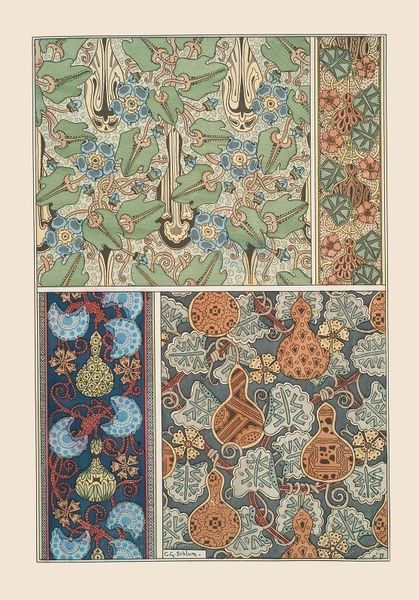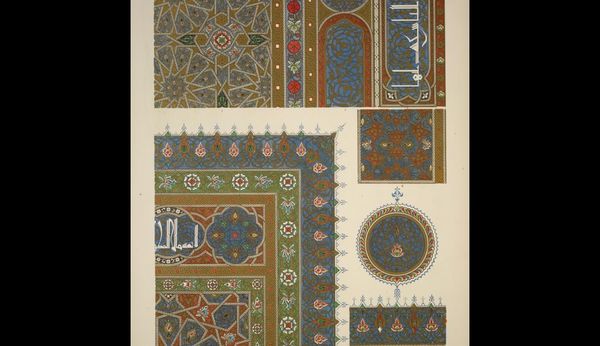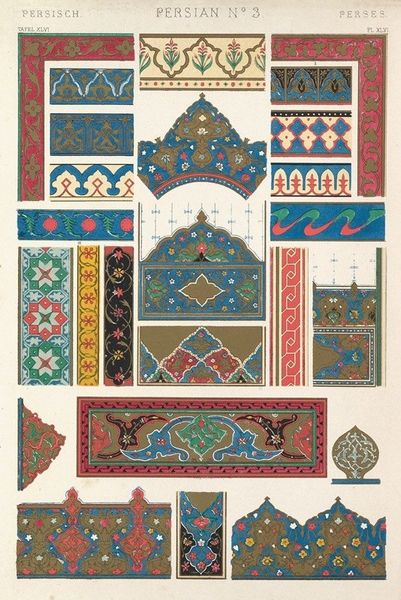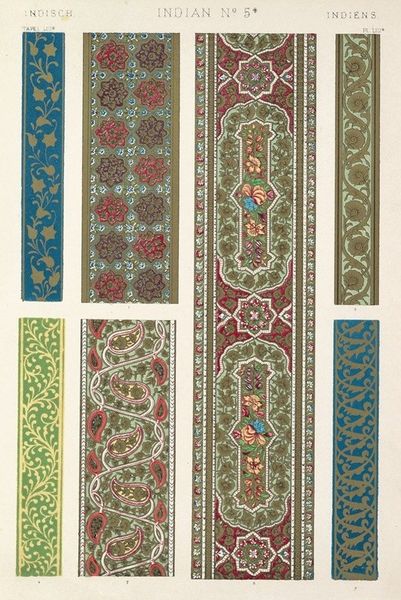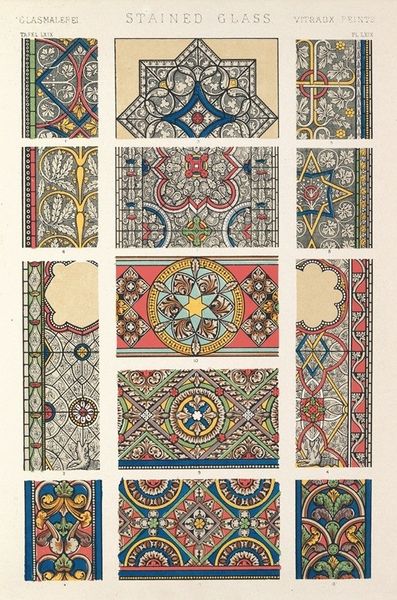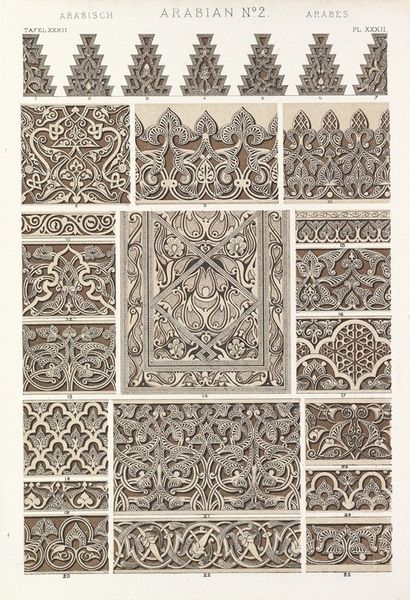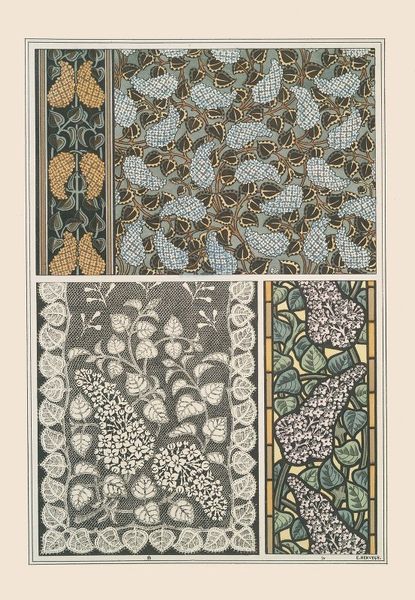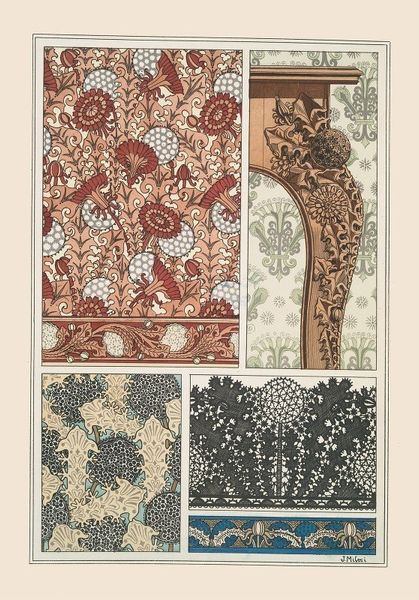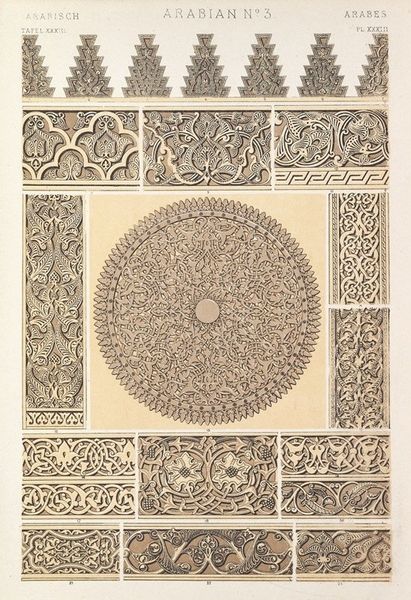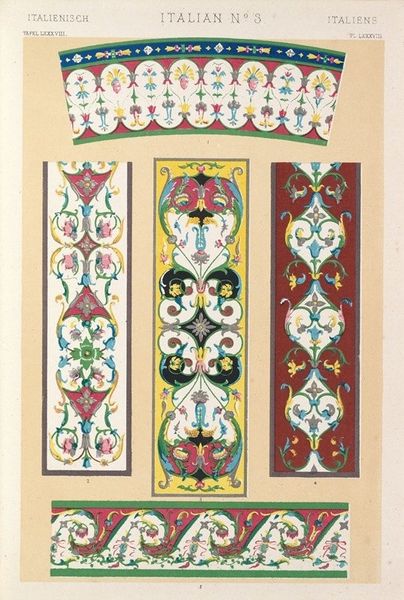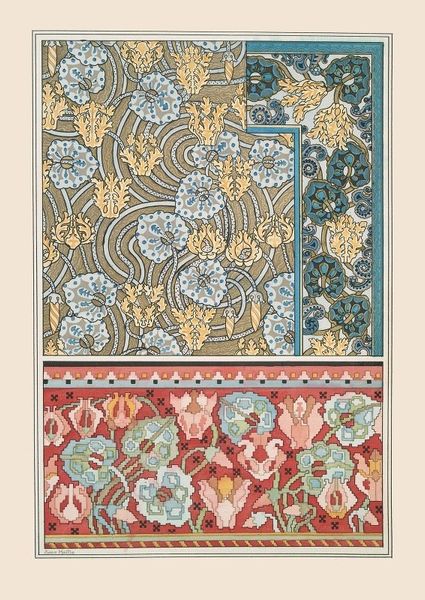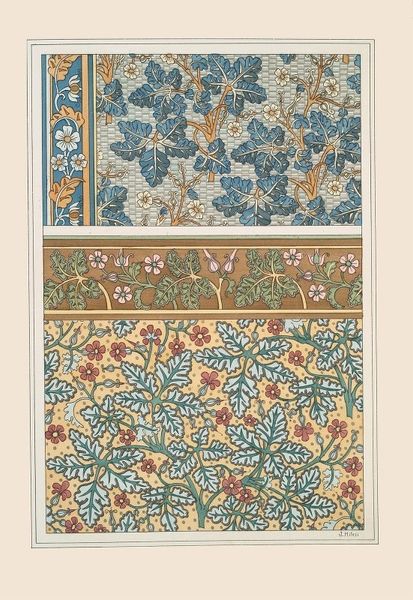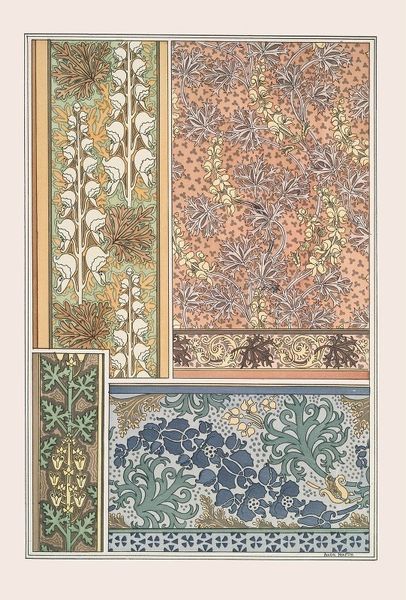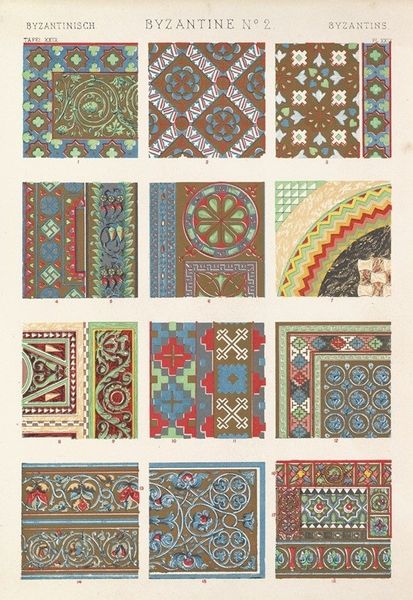
#
tiling design
#
natural stone pattern
# print
#
collage layering style
#
fashion and textile design
#
pattern design
#
ethnic pattern
#
pattern repetition
#
islamic-art
#
textile design
#
decorative-art
#
layered pattern
#
ethnic design
Copyright: Public Domain: Artvee
Owen Jones created ‘Arabian No. 4’, a lithograph, to illustrate the principles of design found in Islamic art. Jones was part of a 19th-century movement that sought to codify ornament, to bring its principles under rational control and make it available for use in industrial design. He traveled extensively in Islamic countries, making detailed records of historical ornament. Jones saw Islamic design as embodying a universal, timeless quality. In ‘Arabian No. 4’ we see a variety of geometric and floral patterns, carefully rendered. Such artworks reflect Victorian England’s fascination with the ‘Orient,’ but also its impulse to classify and master other cultures’ artistic traditions, so that they could be applied to their own contemporary world. To understand this image more fully, we can consult archives of design history and examine the wider context of British Imperialism. This helps us to see how aesthetic forms are often linked to social and institutional power.
Comments
No comments
Be the first to comment and join the conversation on the ultimate creative platform.
